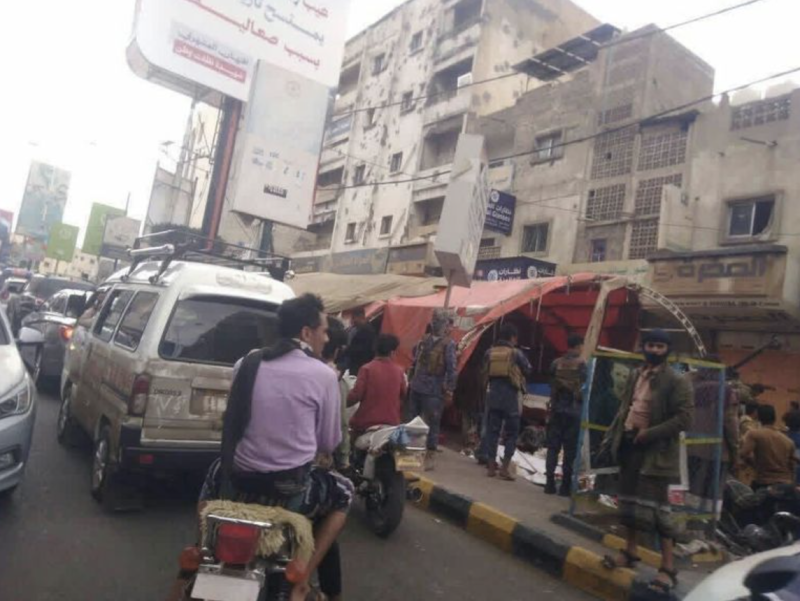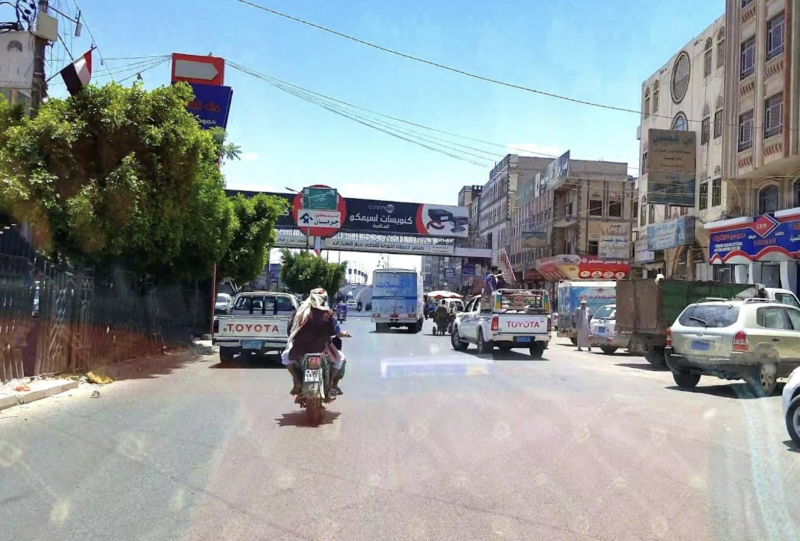Yemen : Red Sea crisis risks throwing Yemen into ‘humanitarian abyss’


‘Yemen has been almost forgotten on the global agenda, and on the agenda of international humanitarian organisations.’
As US and UK airstrikes on Yemen’s Houthi rebels fail to stop attacks on ships in the Red Sea, aid groups are increasingly concerned that the escalation will worsen their ability to get help to the millions of Yemenis in dire need of humanitarian assistance.
Since late October, the Houthis (officially named Ansar Allah) — who control most of north and northwest Yemen — have been sending missiles, drones, and armed boats to attack ships travelling through the Red Sea. The group says these attacks are a gesture of solidarity with Palestinians in Gaza, and are aimed at ships that are owned, flagged, or operated by Israel, or headed to Israeli ports.
The Houthis have been fighting Yemen’s internationally recognised government (and its allies) for control of Yemen since 2015 in a war that has driven parts of the country to the brink of famine. The UN predicts that 18.2 million Yemenis, more than half of the population, will need some sort of aid or protection in 2024, but this calculation was made before the latest events.
Following the attacks, and one hijacking, many global shipping companies have rerouted their travel away from the Red Sea and the Bab al-Mandab strait — a major trade route between Yemen and Djibouti — leading to fears about increased global prices (including oil) and inflation. The US and the UK began hitting Houthi targets in Yemen on 11 January in what US President Joe Biden described as a “direct response to unprecedented Houthi attacks against international maritime vessels in the Red Sea”.
But the attacks have continued, and the Houthis have now ordered US and UK nationals who work for the UN or other Sana’a-based NGOs to leave the country within a month. All of this has aid groups seriously concerned about Yemen’s already dire economic state, how assistance will get into the country, and if they can deliver it to places that are being bombed.
“With growing tensions in the Red Sea, humanitarian organisations are finding it increasingly difficult to bring in medicines, which are essential to the survival of the population.”
Action Against Hunger
Fares al-Wael, CEO of the Sana’a-based National Foundation for Development and Humanitarian Response, an NGO that works on aid projects in the north and west of Yemen, told The New Humanitarian that “reaching [some] areas with aid will become increasingly difficult as they become sensitive operational zones, posing a significant danger to humanitarian personnel”.
Yemen relies on imports, mostly via its Red Sea ports, for the vast majority of its food, as well as for aid shipments. “The escalation jeopardises that lifeline… putting millions at risk and plunging western Yemen and Sana’a into a humanitarian abyss,” al-Wael added.
Low aid funding
Yemenis have already been struggling to get the aid they need, in part due to low humanitarian funding. The UN’s $4.34 billion ask for 2023 aid to Yemenis was only 39.3% funded, the lowest percentage given towards a UN Yemen appeal since war-related plans began in 2016.
Mustafa Nasr, head of the Studies & Economic Media Centre, based in the Yemeni city of Taiz, believes the decline in aid funding is due to an eruption of new crises since Yemen’s war began — including the COVID-19 pandemic, the Russian invasion of Ukraine, and other wars such as Sudan.
“Yemen has been almost forgotten on the global agenda, and on the agenda of international humanitarian organisations,” Nasr said.
In December, the World Food Programme paused regular food distributions to many people in northern Yemen, “driven by limited funding and the absence of an agreement with the [Houthi] authorities”.
Yemenis who have already faced aid cuts are particularly worried. Umm Ahmed, a 36-year-old mother of four from Sana’a, told The New Humanitarian she had not received the food rations she relies on to feed her family – usually delivered by a local NGO – in months.
Her husband died four years ago, leaving the family without its breadwinner and dependent on help from relatives and neighbours. Umm Ahmed (which means mother of Ahmed), who asked that her full name not be published for security reasons, is concerned that what is happening in the Red Sea will make her situation even more precarious. “We have no choice but to make do with whatever comes our way,” she said.
Rising prices and suspended operations
A group of 26 aid groups working in Yemen warned last week that the “impact of the security threat in the Red Sea is already being felt by humanitarian actors as disruption to trade is pushing up prices and causing delays in shipments of lifesaving goods”.
Some aid groups, their statement said, had already had to suspend operations over safety concerns.

Taiz — Local sources reported Thursday that security forces dismantled protest camps set up along Jamal Street in central Taiz, following a d…

Sana’a — Police in the Yemeni capital announced Wednesday the arrest of two suspects accused of killing a man and his wife on Khawlan S…

Sana’a — Local sources reported that four civilians, including two women and a child, were killed when an armed assailant opened fire o…